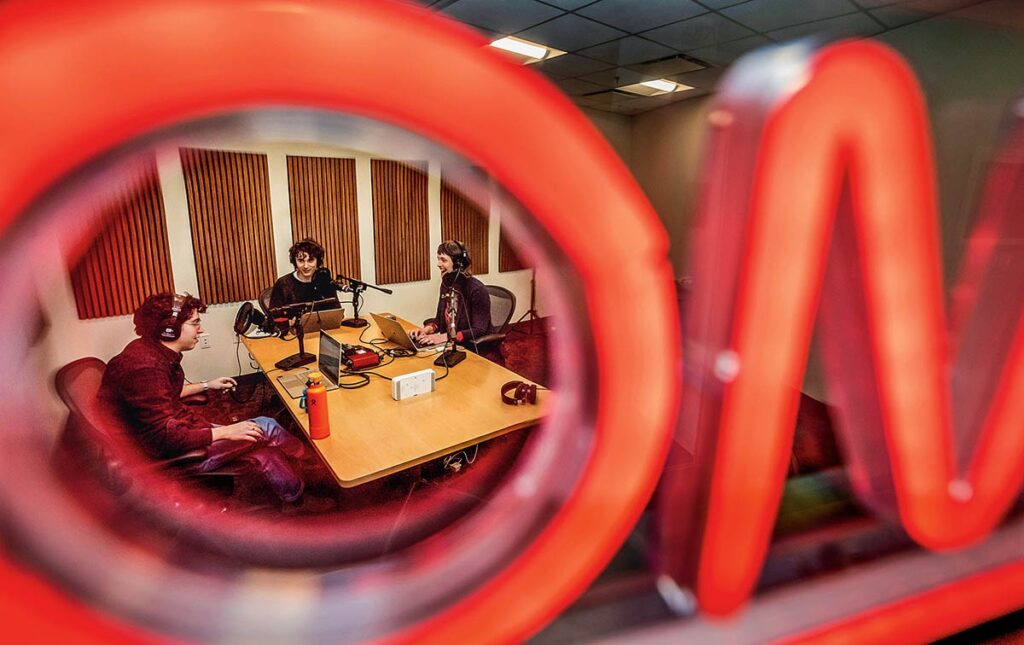Climate communication often presents a daunting picture of environmental challenges, yet a unique approach is emerging from Brown University that emphasizes hope and action. A podcast named Possibly is redefining how we talk about climate change, offering listeners practical solutions and a more optimistic outlook.
The idea for the podcast originated when Stephen Porder, an ecology professor at Brown University, proposed a concept to Torey Malatia, the general manager of Rhode Island Public Radio. Porder’s vision was to create a show that would focus on actionable steps people can take regarding environmental sustainability, rather than just highlighting the problems. “It wasn’t about trying to convince people that climate change was real, it was about things people could do that would actually be helpful,” Porder explained. This initiative led to a collaboration with Megan Hall, a local radio producer and a Brown alumna, resulting in Possibly, a podcast featuring short, engaging episodes.
Since its inception in 2019, Possibly has produced over 268 episodes, sometimes featured as segments on National Public Radio’s Morning Edition and All Things Considered, and available as a standalone podcast on popular platforms like Apple and Spotify. The podcast aims to cut through overwhelming information, as Hall describes, “Our intent is really to sort through all of the noise and say here’s what’s worth paying attention to, and here are things you don’t need to obsess about.”
From the beginning, the podcast has also served as a training platform for aspiring science communicators. Students at Brown University, under Hall’s guidance, learn to convey scientific information in an accessible manner. The format of the show evolved after a successful trial of a conversational style, which Hall noted was more engaging than a formal script. This balance between scientific accuracy and listener engagement is a hallmark of the show.
Reaching a Wider Audience
Each episode of Possibly often includes insights from experts, many of whom are Brown faculty eager to share their research with the public. Environmental historian Bathsheba Demuth, who discussed the concept of wilderness on the show, experienced firsthand the reach of the podcast when the Alaska office of the National Parks Service contacted her for collaboration after her segment aired.
Baylor Fox-Kemper, a professor involved with the Intergovernmental Panel on Climate Change, praised the podcast for its role in changing public perception. “We’ve shifted from 60 percent of people not believing climate change is real to 75 percent of people believing it is real, but a large fraction of them feel like there is nothing they can do about it,” Fox-Kemper noted, acknowledging the podcast’s effectiveness in overcoming communication barriers.
The podcast not only educates listeners but also provides student reporters like Will Malloy with valuable experience in science communication. Malloy, an English and ecology concentrator, emphasizes the importance of making complex data relatable, using analogies to make concepts like CO2 emissions understandable to the general public.
A Legacy in the Making
Alumni of Possibly are leveraging their skills in various roles across the globe. Molly Magid, one of the program’s first student reporters, now works in New Zealand as a communications manager at an environmental nonprofit, continuing her passion for making science accessible. Fatima Husain, a former science editor, attributes her growth as a journalist to her time with the podcast and is currently pursuing a PhD at MIT, using her experience to teach environmental policy.
Other alums are making their mark in journalism and media, including Max Kozlov at Nature and Luci Jones with Wonder Media Network. Recent graduate Janek Schaller is working on a podcast series focusing on agricultural innovation, highlighting the growing influence of audio media in engaging audiences on environmental issues. “People find the human voice inherently compelling,” Schaller states, underscoring the podcast’s potential to educate and inspire change.
Original Story at www.brownalumnimagazine.com
